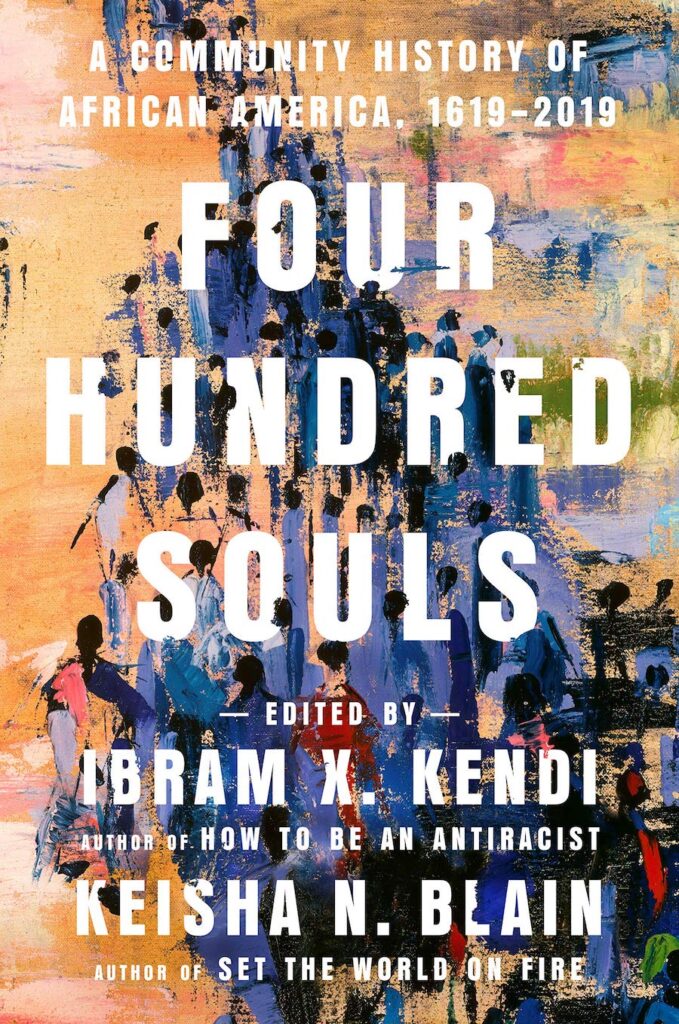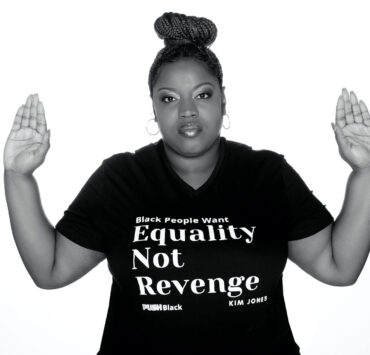A self-described choir of eighty writers contribute historical insights into every five-year period of African American life in this country over the last four hundred years. Here are a few of the contributions leading up to the American Revolutionary War and a fraction of the book.
Introduction. “African speaks to people of African Descent. Black speaks to a people racialized as Black. There is no better word than we. Even when it is involuntary- meaning to be Black in America is to almost never be treated as an individual. The individual of African descent is not seen. The Black race is seen in the individual. All Black women are seen in the woman. All Black men are seen in the man.” – Ibram X. Kendi
1619. “But while every child learns about the Mayflower, virtually no American child learns about the White Lion.” This latter ship bore the first documented “twenty and odd Negroes” to America a year earlier. — Nicole Hannah-Jones
1650. “Slavery had not evolved into the pervasive institution that would devour the labor and lives of millions of people of African American descent.” – Heather Andrea Williams
1700. Virginia established a slave woman’s offspring were immediately enslaved, and enslaved people were prohibited from bearing arms. “It is nearly impossible to separate gun ownership and race in America.” The NRA, founded in 1871, lent its support to disarming Black Panthers in the late 1960s. – Kellie Carter Jackson
1700. Slave codes demonstrate the institution of slavery was “achieved with clear foresight and determined maintenance.” Kay Wright “Before 1700 and 1724, marronage, revolts, and more than fifty insurrections aboard slave ships caused much alarm throughout the British colonies.” Sylviane A. Diouf
1725-1750. Enslaved peoples’ revolts and insurrections were becoming common. Sylvia Diouf. “Resistance was becoming ubiquitous.” Walter Rucker Mays “The Stono Rebellion was one of the bloodiest uprisings of enslaved people in the history of the land that would become America.” – Wesley Lowery
1750-1775. Indigenous and Black peoples’ “dispossession and enslavement were fundamental to pre-revolutionary America.”- Kyle
1750-1775. Borrowing concepts from the Enlightenment, Benjamin Franklin, and Thomas Jefferson wrote about “race” differences that would become foundational in establishing the new nation. – Dorothy Roberts
1750-1800. Nearly simultaneously, Black women poets made significant literary contributions: Terry Prince, Phillis Wheatley, and Jupiter Hammon. Nafissa Thompson-Spires
1750-1800. “African Americans began establishing a shared religious life and culture in the late colonial period.” David George, who had escaped bondage, “established a freedom church that interrupted the lies of racism.” – William Barber II

Poem: Before Revolution “Before Colin Powell. Before Kayne West. Before Roc-a-Fella. Before their heads were cash, we were. Before Wall Street was a public slave market on Wall Street. Feet and lemons in the open. Before a flood, wickedness is just another way to be the almighty.” – Morgan Parker
“And so by fateful chance the Negro folk-song– rhythm cry of the slave– stands today not simply as the sole American music, but as the most beautiful expression of human experience born this side of the sea.” – W.E.B. Du Bois, The Souls of Black Folk










